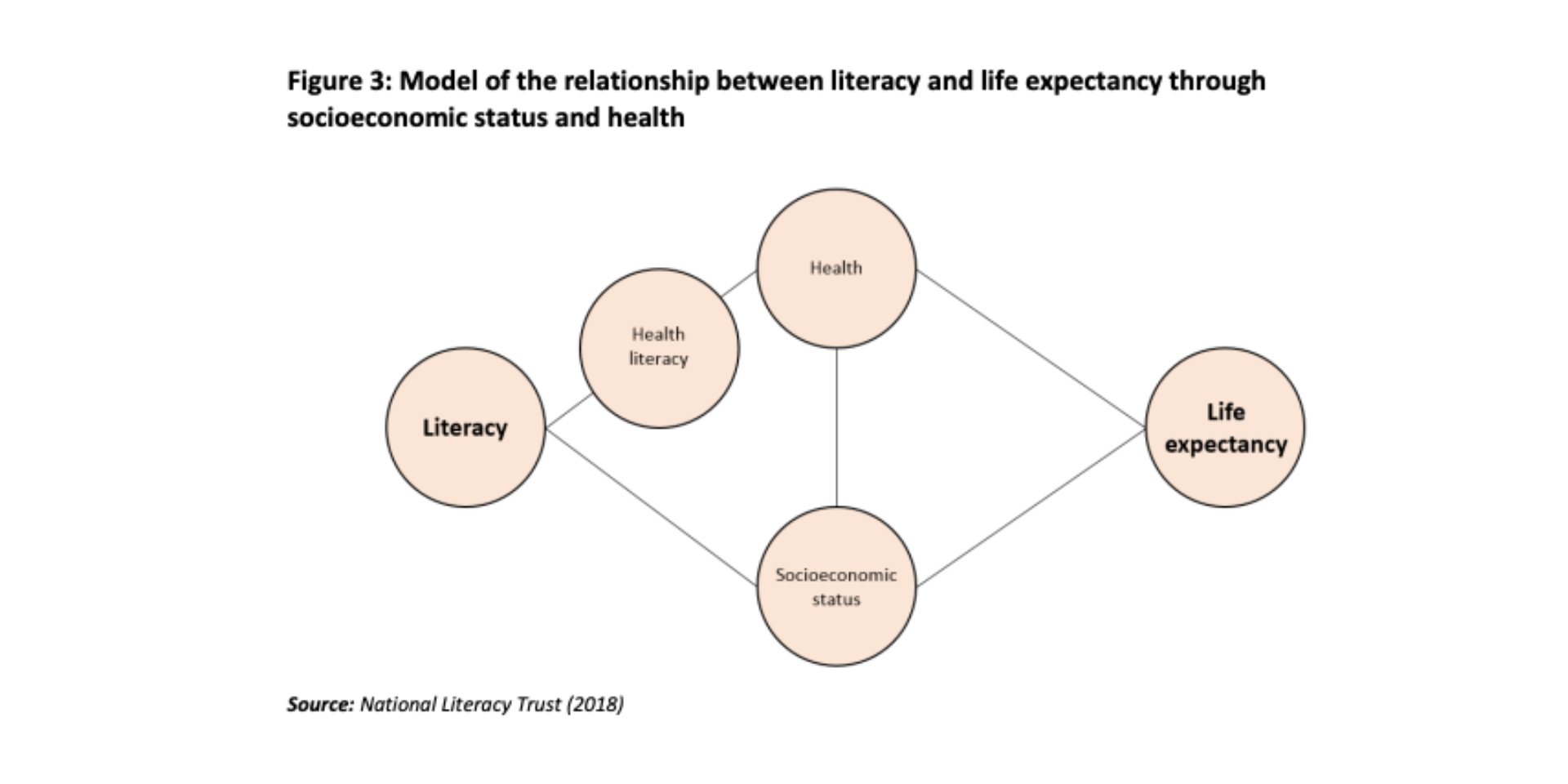Blog
·Literacy and Life Expectancy: A Perspective from our CEO

In all the usual political noise we come to expect around this time of year, the recent declaration that Stockton is a less than desirable place to live, seems to have fallen off the radar.
However, for us Teessiders, it’s left a bitter taste and a lot of pondering…
The North-South divide is real.
It’s VERY real.
The deprivation and achievement gap is undeniably and inescapably real, for those who witness it up close every single day.
Levelling up and the need to put us all on a level playing field – yes, that’s real too.
If we believe in true social justice and inequality then we must believe in education and ensure everyone gets the same bite of the cherry.
I currently have my head in the books, and my ears tuned in to no end of podcasts, as I research content for Lexonik US Inc.
One of the topics I’m battling with, as I navigate this vast amount of material, is the link between literacy and life expectancy.
I’m doing this research to support our American business entity, but under the recent declaration of Teesside, it becomes blaringly obvious that the disparity The National Literacy Trust unveiled in their 2018 study, is real and incredibly damming.
It also blows my mind that the link between life expectancy and literacy is a real thing, and that we have folks dying younger for reasons linked to their literacy needs.
A new study from Northwestern University's Feinberg School of Medicine shows that older people with inadequate health literacy had a 50 percent higher mortality rate over five years than people with adequate reading skills.
Functional literacy is often defined as being able to read and comprehend the instructions on a medicine bottle or instruction leaflet.
Functional literacy means you can keep yourself and those who depend on you safe and alive.
The reading age equivalent for such a status is around 14 years. So, if you’re an adult with a Reading Age of less than 14, your poor literacy is putting you and your family’s life at risk!

Read that again…
If you’re an adult with a Reading Age of less than 14, then your poor literacy is putting you and your family’s life at risk!
David Baker, M.D., lead author of the study and chief of general internal medicine at the Feinberg School says: “When patients can't read, they are not able to do the things necessary to stay healthy…
They don't know how to take their medications correctly, they don't understand when to seek medical care, and they don't know how to care for their diseases."
In the same study Baker goes on to say:
"We need to use plain language…We're not talking about dumbing down material. We're talking about using simple language the average person would understand."
Mmm, this has struck a bit of a niggle for me.
Throughout my teaching career I’ve been a huge advocate of a challenge for all curriculum, so the concept of using simple language as a solution troubles me.
In my humble opinion we need to focus on the source of the problem and adapt and better our teaching of reading to allow all people this access.
‘Dumbing down’ prevents us from challenging the status quo and addressing the bigger question of if folks can’t read well enough to keep themselves healthy what else is their lack of literacy preventing them from accessing and doing?
Going back to David Baker: “One example is saying "sugar" instead of "glucose" when discussing diabetes.” – of course sugar is an easier word and concept to read and understand, but if the science needs us to understand glucose then we need to be teaching people so they have this bank of vocabulary.
Folks need the domain specific knowledge to comprehend the language.
We have ‘high frequency’ words for young children and phonics, so maybe we need a minimum life survival ‘site vocabulary’ for grown-ups?
I fully support Dr Baker in his desire to make health care accessible, but there’s a fundamental flaw here.
We should be creating generations of people who, in the majority, can access the instructions and language on a medicine bottle, and then make reasonable adjustments for the minority who can’t.
Surely ‘dumping down’ is perpetuating the problem?
So back to Teesside…

Whether we agree that Stockton is a ‘**** hole’ or not, the facts and reality of the literacy gap are stark and we need to challenge them.
The National Literacy Trust, in their 2018 study focused on Teesside to support the evidence their report was unveiling.
The summary report alone is frightening:
- Literacy is linked to life expectancy through a range of socioeconomic factors
- People with poor literacy skills are more likely to be unemployed, have low incomes and poor health behaviours, which in turn can be linked to lower life expectancy
- 43% of working-age adults in England don’t have the literacy skills they need to understand and make use of everyday health information (known as ‘health literacy’
“A boy born in Stockton Town Centre has a life expectancy 26.1 years shorter that a boy born in North Oxford”
Just keep reading and reading that quotation from The National Literacy Trust. A boy has a lower life expectancy in Teesside than in Oxfordshire, which is approximately 3 and a half hours down the M1!
I’ve lived in Teesside all my life and know there’s a much greater picture in that final statistic from The National Literacy Trust, but if we combine that with the findings from Dr David then a glaringly obvious and relatively easy area to develop to close the life expectancy gap is literacy.
If we can ensure all children in Teesside can read and access language as well as those in Oxford, then we are actively closing the gap.
Students in areas of deprivation across the country need targeted and specific interventions to ensure their literacy and reading vulnerabilities isn’t a reason for the dying earlier than their neighbour.
This is exactly what’s at the heart of Lexonik.
Every single day of my working life I say “No one should be limited because they can’t read” and I believe it.
It’s a sad fact that poorer reading and literacy seems to be a matter of a shorter life.
The bright side is that unlike other health and social interventions, giving folks the knowledge to be adult readers who can keep themselves and their dependants safe, is really easy.
We just have to crack on.
Please do get in touch if you have need of our interventions. Contact us here.
Sarah Ledger
Lexonik CEO